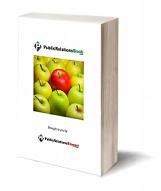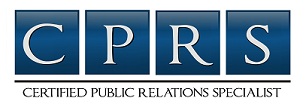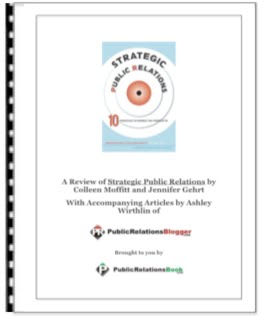________________________________________________________________________
 Want to get radio interviews and coverage in print publications to sell more books?
Want to get radio interviews and coverage in print publications to sell more books?
Master the art of writing magnetic media releases that attract attention of editors and publishers.
A media release (which also goes by its former name, the press release) is a one page, double spaced, single-sided document designed to transmit news about books, products, and people.
Because of its official sounding name, authors often make the mistake of sounding like Sgt. Friday of the TV show "Dragnet" when they write the release, and make it Too fact oriented.
Don't forget that real live people, editors and producers, must pull the release from the fax machine and be motivated to read it.
Motivating Editors and Producers to Read Your Release In today's world, getting editors and producers to actually read your release is a challenge. Every day, people tap into the possibilities of free publicity and are becoming proactive in getting their voice heard.
As the producer of a lifestyle TV show, I receive upward of two hundred releases a week. However, only a small percentage are both appropriate for the show and grab my attention.
Below are 10 tips to help you write releases that get your message heard. 1. Write an attention grabbing headline. Realize that your headline must immediately "hook" a busy producer or editor at first glance. If your headline doesn't hook them, they won't read further.
2. Be certain that your book is appropriate for the target audience.
Do not send a media release about your romance novel to a radio show that interviews only nonfiction authors. Wishful thinking is well and good, but realize that shows KNOW their target market.
3. Realize that there is a difference in format when sending a release by email and by fax. A faxed release and release sent by mail can be identical. However, an email release requires careful crafting to get right and is an art onto itself. The key concept to remember is twofold. First, the subject line spells the difference between the release being opened or deleted. Second, you must target delivery of the email release carefully, or you risk being banned forever to the recipient's "bozo" file.
4. Be certain to include key information in a book release such as your ISBN number, publication date, page count and binding, and if you like a small .jpeg of the cover.
5. You can increase your chances of being booked on a radio station if you offer to give away books on the show in your release.
6. For media releases aimed at reviewers, include information on how they can get a book to review by email or fax.
7. Do not follow up to see if the recipient received the release. If this is a show or publication you are keenly interested in, call them with "new information" designed to create more excitement in featuring you.
8. Keep a notebook with you and jot down names of appropriate media contacts as you read publications and hear radio interviews.
9. Journalists and producers need you and your news, but will lose respect if you hammer them with releases that don't apply to their market or beat. Discriminate.
10. Keep a "swipe file" of clever advertisements or headlines you can refer to when you need a creative boost.
copyright 2004 Marisa D'Vari All rights reserved
Download a free 79 page Special Report on how to Build Buzz for your business with free publicity. Regularly $19.95, FREE in honor of Shameless Promotion month.
Article Source.
10 Tips to Writing a Fascinating Press Release
________________________________________
 Want to get radio interviews and coverage in print publications to sell more books?
Want to get radio interviews and coverage in print publications to sell more books?Master the art of writing magnetic media releases that attract attention of editors and publishers.
A media release (which also goes by its former name, the press release) is a one page, double spaced, single-sided document designed to transmit news about books, products, and people.
Because of its official sounding name, authors often make the mistake of sounding like Sgt. Friday of the TV show "Dragnet" when they write the release, and make it Too fact oriented.
Don't forget that real live people, editors and producers, must pull the release from the fax machine and be motivated to read it.
Motivating Editors and Producers to Read Your Release In today's world, getting editors and producers to actually read your release is a challenge. Every day, people tap into the possibilities of free publicity and are becoming proactive in getting their voice heard.
As the producer of a lifestyle TV show, I receive upward of two hundred releases a week. However, only a small percentage are both appropriate for the show and grab my attention.
Below are 10 tips to help you write releases that get your message heard. 1. Write an attention grabbing headline. Realize that your headline must immediately "hook" a busy producer or editor at first glance. If your headline doesn't hook them, they won't read further.
2. Be certain that your book is appropriate for the target audience.
Do not send a media release about your romance novel to a radio show that interviews only nonfiction authors. Wishful thinking is well and good, but realize that shows KNOW their target market.
3. Realize that there is a difference in format when sending a release by email and by fax. A faxed release and release sent by mail can be identical. However, an email release requires careful crafting to get right and is an art onto itself. The key concept to remember is twofold. First, the subject line spells the difference between the release being opened or deleted. Second, you must target delivery of the email release carefully, or you risk being banned forever to the recipient's "bozo" file.
4. Be certain to include key information in a book release such as your ISBN number, publication date, page count and binding, and if you like a small .jpeg of the cover.
5. You can increase your chances of being booked on a radio station if you offer to give away books on the show in your release.
6. For media releases aimed at reviewers, include information on how they can get a book to review by email or fax.
7. Do not follow up to see if the recipient received the release. If this is a show or publication you are keenly interested in, call them with "new information" designed to create more excitement in featuring you.
8. Keep a notebook with you and jot down names of appropriate media contacts as you read publications and hear radio interviews.
9. Journalists and producers need you and your news, but will lose respect if you hammer them with releases that don't apply to their market or beat. Discriminate.
10. Keep a "swipe file" of clever advertisements or headlines you can refer to when you need a creative boost.
copyright 2004 Marisa D'Vari All rights reserved
Download a free 79 page Special Report on how to Build Buzz for your business with free publicity. Regularly $19.95, FREE in honor of Shameless Promotion month.
Article Source.
Tags: books, public relations, PR, writing press releases, tips
Popular choices
- Non Gamstop Casino
- Mejores Salas De Póker
- Casino Non Aams
- Non Gamstop Casinos
- Siti Casino Online Non Aams
- Migliori Siti Casino Online
- UK Online Casinos Not On Gamstop
- Meilleur Casino En Ligne Live
- Non Gamstop Casino Sites UK
- Non Gamstop Casino Sites UK
- UK Casino Not On Gamstop
- Casinos Not On Gamstop
- Online Casino
- オンラインカジノ
- UK Casino Not On Gamstop
- UK Casino Not On Gamstop
- Reputable Non Gamstop Casinos
- Casinos Not On Gamstop
- Best Non Gamstop Casinos
- Non Gamstop Casino
- Casinos Not On Gamstop
- Slots Not On Gamstop
- Non Gamstop Casino
- Casino Non Aams
- Casinos Not On Gamstop
- Betting Sites Not On Gamstop
- Casino Online Italia
- Casino En Ligne
- Casino En Ligne Belgique
- Siti Scommesse Bitcoin
- KYC 인증 없는 카지노
- Sites De Paris Sportif Fiables
- Casino En Ligne France
- Casino Non Aams Prelievo Immediato
- Meilleur Casino En Ligne Belgique
- Meilleur Casino En Ligne 2026
- Meilleur Casino En Ligne
- Casino En Ligne 2026
- Casino En Ligne France
Subscribe to:
Post Comments (Atom)






Comments (0)
Post a Comment